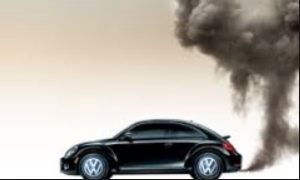
Ethics is defined by the Oxford Dictionary as the ‘moral principles that govern a person’s behavior or the conducting of an activity’. Ethics play a big role in making choices in one’s life and that is no different when regarding business ethics. Business ethics refers to the moral and ethical practices that corporations have an obligation to follow. This is widely known as CSR or corporate social responsibility. While most big companies claim to have good CSR, the gray area lies in what can be defined as ‘good’ CSR as it is subjective and will vary between different firms.
The ‘diesel dupe’ occurred in September of 2015 when allegations had risen that Volkswagen had installed software on their automobiles that had the capabilities to cheat the emissions testings. The software was able to detect when the engines were being tested and adjust the performance to minimize emissions so that the testings would appear positive. Once the cars were back on road, the engines switched back to their regular modes, resulting in emissions of ‘nitrogen oxide pollutants up to 40 times above what is allowed in the US.’ Volkswagen later admitted to these allegations, however the CEO at the time Michael Horn (who has since stepped down as CEO) had testified that there was no corporate decision amongst the executives to install this system to cheat the tests and it was ‘software engineers who put this in for whatever reason’. The whole scandal had cost Volkswagen an estimated 2.19 billion USD in reclaiming a total of 8.5 million across Europe and the United States vehicles.
The case of the ‘diesel dupe’ is clearly a breach of business ethics as the scandal put the public’s welfare and health at risk with the pollutants that were emitted from the car. On top of public safety this case study also raises the question of what other corporations have found ways to mislead the public and makes us question the credibility of these mandatory tests. It can be assumed that the whole reason for the ‘diesel dupe’ was because it would cut back on costs, as the engines that were within the safety guidelines could be too expensive to produce. However, since the CEO testified that no one on an executive level was aware of the software, this possibility can be ruled out and instead it could be that the engineers were trying to cut corners in order to make production easier.
In my opinion the whole scandal is preposterous not only for endangering public safety but also for the loss in credibility for Volkswagen as the trust of the people will be hard to earn back after an incident as profound as this.
Words: 445
Bibliography
http://www.bbc.com/news/business-34324772
https://businessethicshighlights.com/2015/09/28/nothing-special-about-volkswagen/
http://economia.icaew.com/business/december-2015/ethics-versus-profit
https://businessethicshighlights.com/2015/10/10/vw-blames-engineers/
https://businessethicshighlights.com/2015/09/21/vws-lies/
http://mashable.com/2015/11/03/volkswagen-co2-irregularities/#SnhEDh_7Dgq3